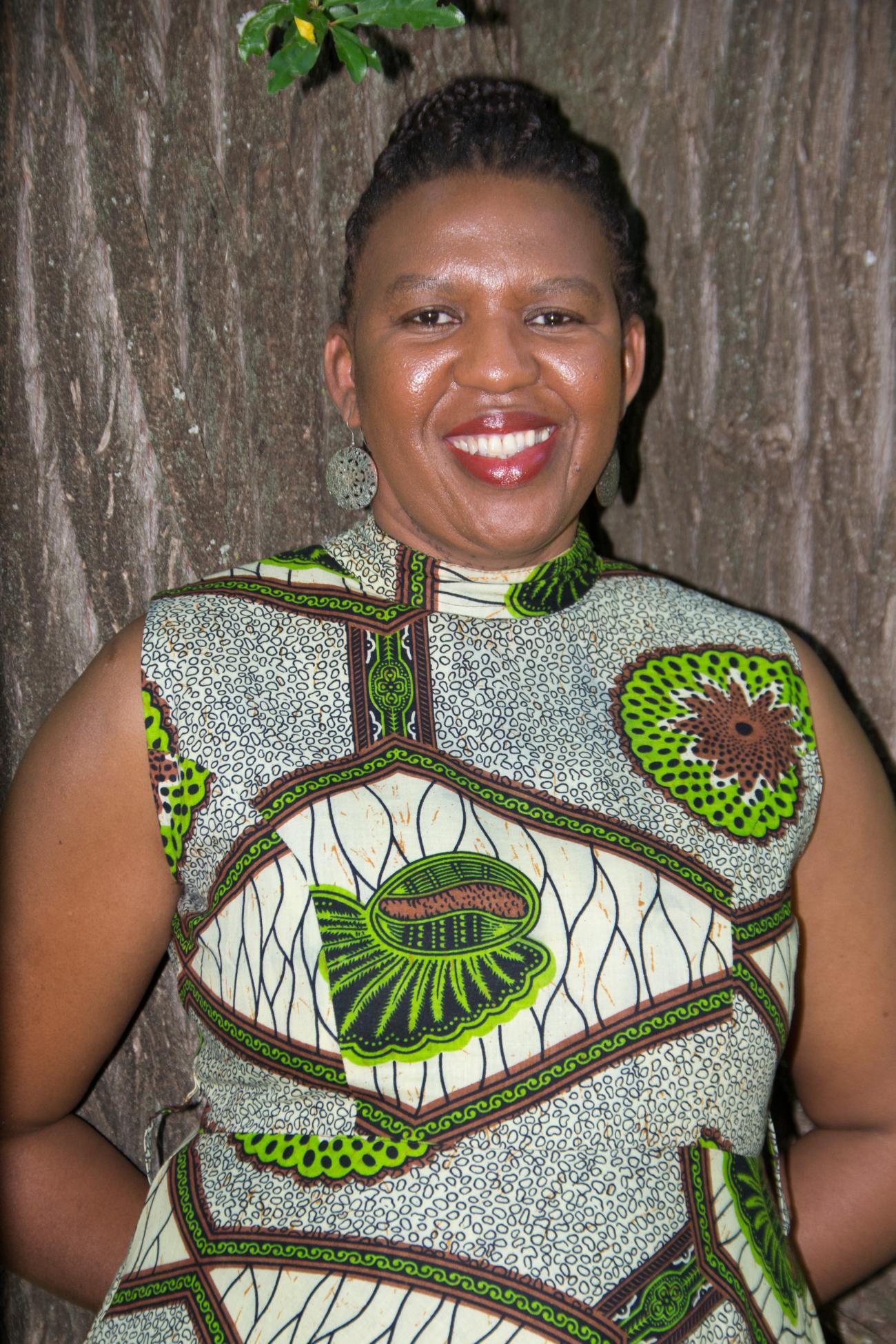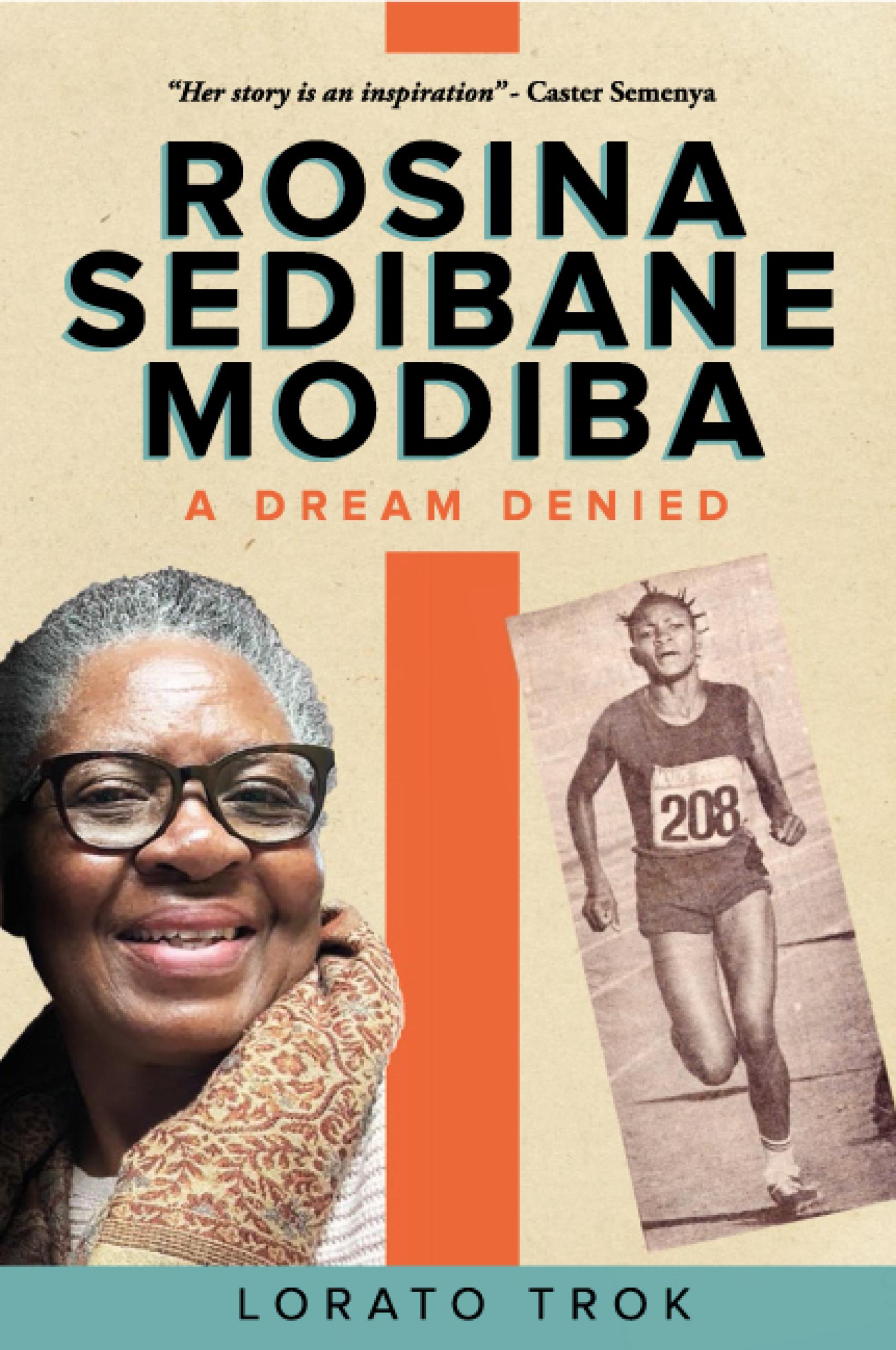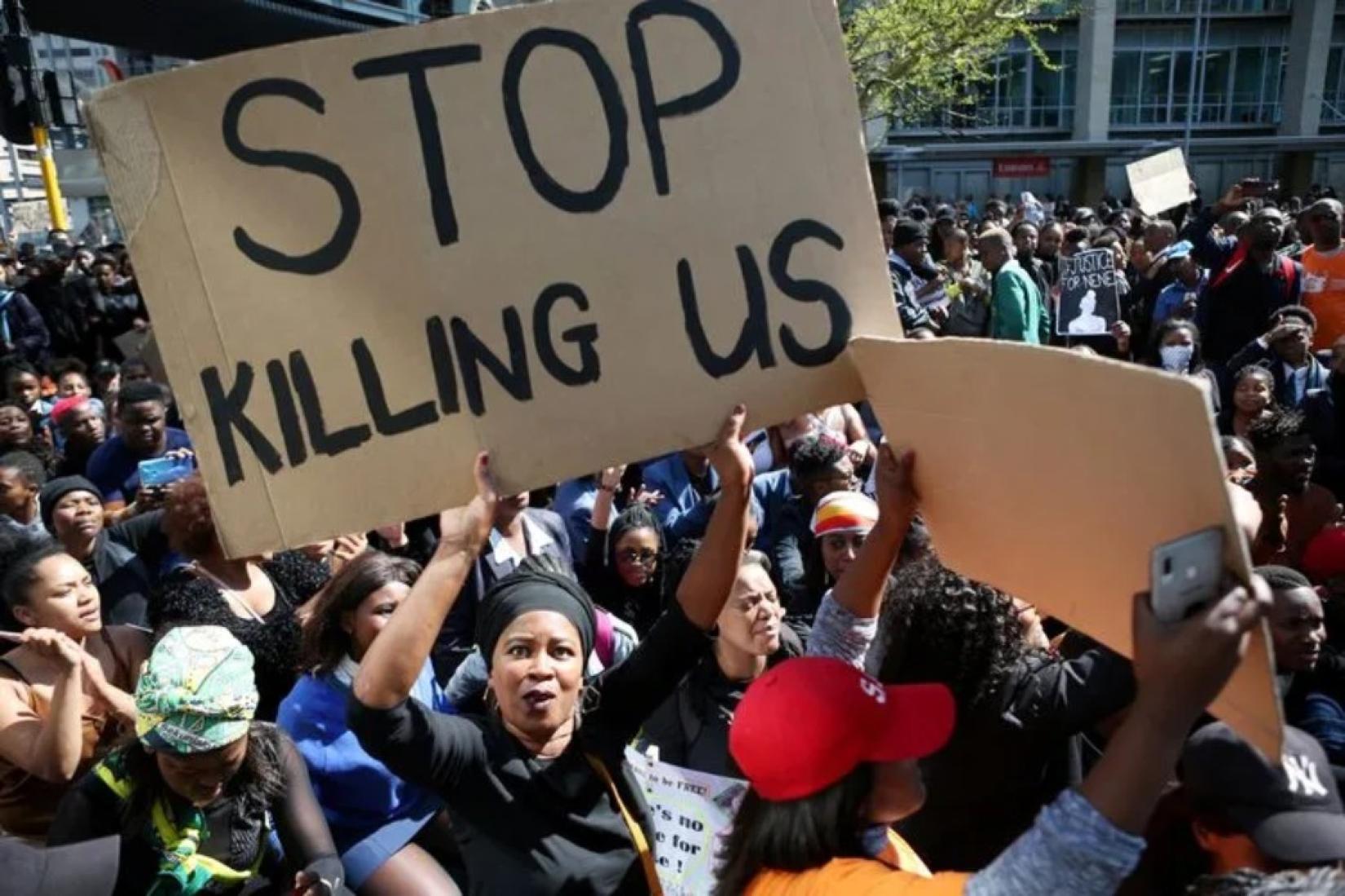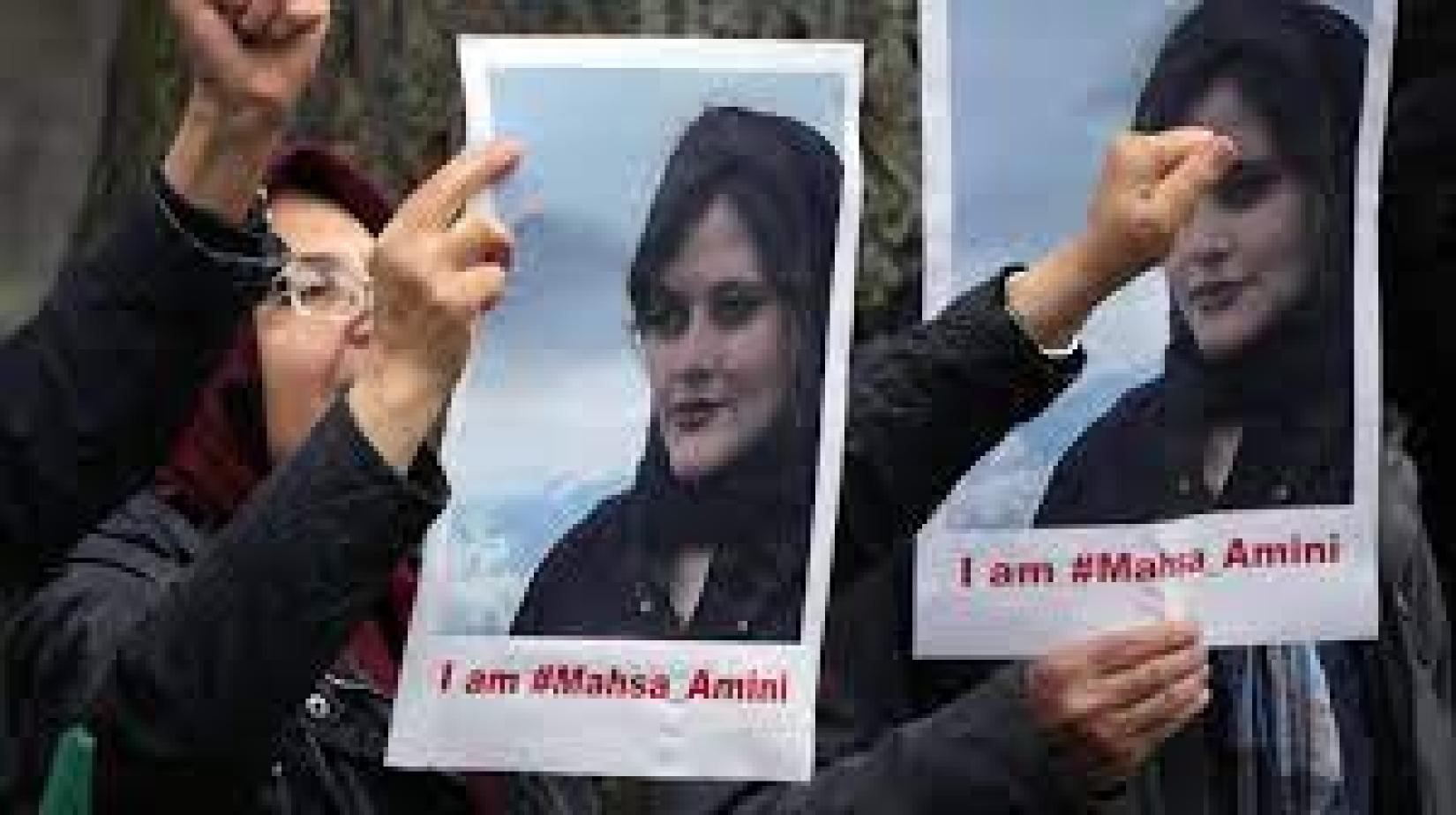South African Perspectives on Women, on Life, on Freedom and on the Tragedy of Masha Amini

By Lorato Trok (South Africa)
The United Nations describes its 17 United Nations Sustainable Development Goals (SDGs) as a call for action by all countries to promote prosperity while protecting the planet. I have written several books for young people. One of those books, Rosina Sedibane Modiba: A Dream Denied, is a young adult (YA) biography of a black female athlete who was the first to compete with white female athletes and set multiple records during apartheid. This biography was selected for the UN SDG Book Club Africa reading list in the SDG 5 (Achieve gender equality and empower all women and girls) category.
Through the stereotyping of gender roles, African girls, black and brown, are made aware from an early age, of their expected roles in society: at church, in the mosque, at school and even more so, at home. Even though it may seem like this topic is heavy for young readers, young girls in Africa have been the recipients of the most barbaric atrocities perpetrated against them, especially in conflict plagued countries and in societies that view the life of a girl child as having no greater value than that of servitude.

And yet, the UN SDG 5 emphasises that gender equity is not only a fundamental human right, it is the necessary foundation for a peaceful, prosperous and sustainable world.
An African Icon Brings Hope to the Continent…But Does He?
It was a hot Sunday of the 11th day of February in 1990. I was a junior in high school. The political climate was supercharged. We had heard that Nelson Mandela was getting out of jail, after 27 years of imprisonment by the apartheid government. Our then government of Bophuthatswana (present day North West Province), one of the Bantustans created by the apartheid government to divide black South Africans along ethnic lines, was doing everything in its power to suppress the citizens fired up by this exciting development. On 27th April 1994, a new democratic country for all was ultimately reborn, with the first black president, Nelson Mandela, at its helm.
After this moment in South Africa, while some things changed for the better, one thing remained constant: violence against children, gender-based violence, and femicide, that is, the killing of women and young girls. As the UN states, even though there has been progress over the last decades, the world is still not on track to achieve gender equity by 2030.

And don’t we all know that? The United Nations Women describes femicide as an intentional killing with a gender- related motivation. Unequal power relations between men and women and stereotyping of gender roles are some of the factors driving this. Living in the most unequal country in the world, (World Bank Report, 2022) black South African women bear the brunt of inequities.
Each year when the South African Police Ministry unveils the annual crime statistics, it’s a given that femicide and gender based violence will be at the top. Usually the killing of women is interconnected with the killing of children. There have been reports of children being killed by their fathers or their mothers’ partners as a way to hurt the mothers, especially when they try to walk away from the partnership.
From April to June 2022, the Police Ministry reported 855 women and 243 children killed in South Africa. This was over a period of two months! In 2016, when the World Health Organisation (WHO) listed countries affected the most by femicide, the statistics showed that South Africa had the fourth highest female interpersonal violence death rate out of the 183 countries listed.
Femicide is five times higher in South Africa than the global average. Despite democracy, things remain the same for vulnerable women, girl children and children in general. The excitement of the moment and the promise of a new country did not wash away their plight.
Covid-19 and its enforced lockdowns exacerbated the situation for women and children locked into homes with violent partners and fathers. Elsewhere across the continent, it may not be as dire as it is in South Africa, but intimate partner violence is active there too.
Although poverty and inequality are some of the main factors driving femicide and gender-based violence, women who are well-off are not immune to this scourge. Agnes Tirop, a celebrated Kenyan Olympic medallist, was stabbed to death by her husband when she tried to leave the marriage. Damaris Muthee Mutua, another celebrated Kenyan long-distance runner, met the same fate: she was found dead at her boyfriend’s place.
Who will ever forget the kidnaping of the Chibok girls? They were stolen from their boarding school in Borno State, North-East Nigeria, on the night of 14th -15th April, 2014.
What is Freedom for Women and Girls and How Do We Achieve and Sustain It?

What does freedom mean to women and girls in Africa and the globe if the harm they are taught to avoid in the streets finds them at home? How can we change the narrative of our beloved continent? In Africa, the colonialists left behind them an endless trail of destruction and pain. With regard to gender relations, their legacy will be felt for generations. But there’s also so much to celebrate in Africa. With the world’s youngest population, it rests upon young Africans, male and female, to change the narrative of the women of Africa and to steer our continent in a new direction – one which will see its people thrive.
In many parts of the world, even though most of the violence perpetrated against women is by current or former partners, under the pretext of law and order, systems of power are geared towards the abuse of women. Law enforcement, health care provision, financial institutions, educational institutions and the judiciary, are some of the institutions that unfairly mete out the most inhumane treatment to women and girl children.
The harassment and killing of Mahsa Amini in Iran by an overzealous police force with unchecked power to police women’s bodies and rights, is a tragedy many women and girls are faced with in their daily lives.
But the kind of self and quiet activism women and girls need to carry within themselves requires them to understand this: the injustices meted out against them are not the result of their own lack but the outcome of deficits and inadequacies in the souls of the perpetrators of injustice and violence against women and girls.
Sources:
- https://www.unwomen.org/en/what-we-do/ending-violence-against-women/facts-and-figures
- https://www.census.gov/library/stories/2022/04/why-study-aging-in-africa-region-with-worlds-youngest-population.html
- https://www.un.org/sustainabledevelopment/gender-equality/
- https://www.gov.za/speeches/minister-bheki-cele-quarter-one-crime-statistics-20222023-19-aug-2022-0000#:~:text=From%20April%20to%20June
About the African Perspectives Series
The African Perspective Series was launched at the 2022 Nigeria International Book Fair with the first set of commissioned papers written and presented by authors of the UN SDG Book Club African Chapter. The objective of African Perspectives is to have African authors contribute to the global conversation around development challenges afflicting the African continent and to publish these important papers in the SDG Book Club blog hosted in the Stories section of the UN Namibia site. In this way, our authors' ideas about the way forward for African development, can reach the widest possible interested audience.
Author Profile
Lorato Trok is an early literacy consultant and expert in developing reading for pleasure books for young children, especially in African languages. She has 20 years' experience in publishing, writing, translation, editing and story development in children's literature. She is currently a Managing Editor at Puku Children's Literature Foundation. Lorato is a published author of 16 children's picture books and biographer of Young Adults non-fiction books, originated in both Setswana and English and translated into other South African languages.
She is a two-time recipient (2017 and 2020) of the Association of Non-Fiction and Academic Authors of South Africa (ANFASA) writing grant, supported by the Norwegian Embassy to write a series of young adult biographies the first is of Rosina Sedibane Modiba, South Africa's first Black female athlete to compete against white athletes during the apartheid years and set multiple records. The second book in this series of unsung heroes is The Forgotten Scientist: The Story of Saul Sithole (Jacana Media, 2020). It is about the untold story of a pioneering black scientist who made a great contribution to the fields of anthropology and ornithology in South Africa. In 2005 Lorato was invited to help launch the "Reading Africa" programme at the Martin Luther King, Jr. Memorial Library, Washington, D.C.
Lorato Trok is the author of SDG Book Club Africa’s SDG 5 (gender equity) selection, Rosina Sedibane Modiba: A Dream Denied.
Read the SDG Book Club Africa interview with Lorato Trok here: https://namibia.un.org/en/169798-sdg-book-club-interview-series-lorato-trok
Read about Lorato Trok’s experience at the Sharjah Children’s Reading Festival 2022 here: https://namibia.un.org/en/187466-sdg-book-club-african-chapters-lorato-…
Written by


